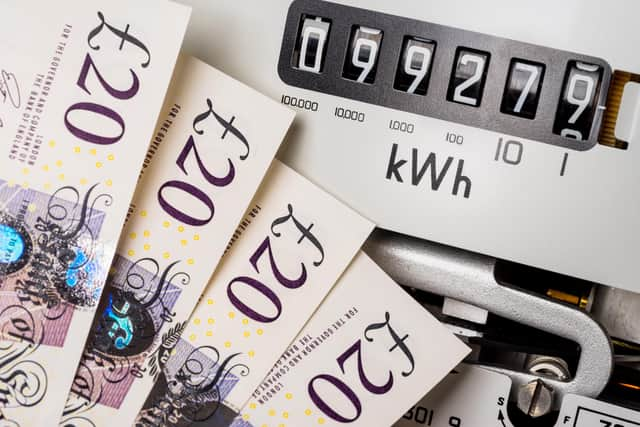How cost of living crisis is crippling Yorkshire families ahead of Spring Statement – Niall Cooper
You and some friends are out for a walk on a route you know well, when the path reaches a riverbank. There has always been a simple wooden bridge here. It was here last time you walked this way but today, as you approach, you see someone in high-vis jacket knocking it down.
Advertisement
Hide AdAdvertisement
Hide AdThe planks lie shattered in the fast-flowing water, and your route is impassable. To compound matters, a storm is breaking and the river is rising. You are stuck.


The metaphor won’t be lost on you. Right now, millions of people across the country are imperilled by an unfolding storm, and have nowhere to turn. The cost of living crisis, on the back of the pandemic, is leaving people in utter crisis. In your community and mine, a ferocious current is sweeping people into poverty. People like my friend, Martin.
Martin lives in West Yorkshire, and can see his cost of living rising every time he looks at his energy meters. His bills have already increased once this year, and he now faces being charged about £1.50 a day more than a year ago. That’s an extra £10.50 a week, £45 a month, £547 a year, for his fuel alone.
“I notice it all the time, and it will go up again in April,” he says. “It’s very difficult at the moment.
“Very, very difficult.”
Advertisement
Hide AdAdvertisement
Hide Ad

Martin was a forklift truck driver but he had to stop working when he suffered nerve damage, and he now has long-lasting pain and anxiety.
He has a vast knowledge of what it means to live in poverty in the UK, and he knows what helps or hinders people in this situation. Cutting his income, unsurprisingly, would be immensely unhelpful, but that is essentially what the Government plans to do in two weeks’ time.
We know inflation is now running at around six per cent, and analysts expect it to remain high for most of this year, potentially even reaching nine per cent.
The Government, however, plans to restrict the increase in welfare payment to 3.1 per cent. That equates to an enormous real-terms cut for millions of people whose incomes come wholly or partly from Universal Credit or other welfare systems.
Advertisement
Hide AdAdvertisement
Hide AdIt is an act of economic harm, knocking down the bridge that people desperately need and leaving them to the mercy of the storm.
If the Government does not change its plans, the consequences will be catastrophic. The Joseph Rowntree Foundation projects that around 9 million low-income households will be £500 a year worse off, and 400,000 people could be swept into poverty. People on low incomes, like Martin, simply have no scope within their household budgets to find hundreds more pounds each year, let alone each month.
Last year, the increase in Universal Credit alleviated Martin’s difficulties, for a while. It meant he was less stressed and on a practical level it meant that when his shoes wore out, he was able to replace them.
Then, in October, the Government un-did that positive step, and cut Universal Credit again, pulling the rug from under Martin and so many others. He says: “Taking that away means I cannot do things, so my mental health is worse, and I’m stuck indoors. I can’t turn my heating off because of my health. I need it on or it affects my mobility. If I’m warm, I can do a little bit, but not if I’m cold. My anxiety and depression now is getting worse and worse again. I’m stressing all the time, and forever trying to change bill payment dates and things like that.”
Advertisement
Hide AdAdvertisement
Hide AdNo compassionate Government would hear accounts like that, and decide the solution is a further real-terms cut in Martin’s income. Anyone who was just balancing a budget last year now faces a significant shortfall. Anyone already short faces being swept into poverty.
There are many things the Government must do to loosen the grip of poverty. In the longer term, we need a sensible redesign of our whole social welfare system, based on evidence from people who understand the system first-hand.
But in the short term, it’s imperative that the Government ensures Martin and thousands like him have enough to live on, that it increases welfare payments by at least seven per cent in April, and, frankly, that it strengthens the bridges people rely on instead of knocking them down.
Niall Cooper is the director of Church Action on Poverty.
Support The Yorkshire Post and become a subscriber today. Your subscription will help us to continue to bring quality news to the people of Yorkshire. In return, you’ll see fewer ads on site, get free access to our app, receive exclusive members-only offers and access to all premium content and columns. Click here to subscribe.
Comment Guidelines
National World encourages reader discussion on our stories. User feedback, insights and back-and-forth exchanges add a rich layer of context to reporting. Please review our Community Guidelines before commenting.